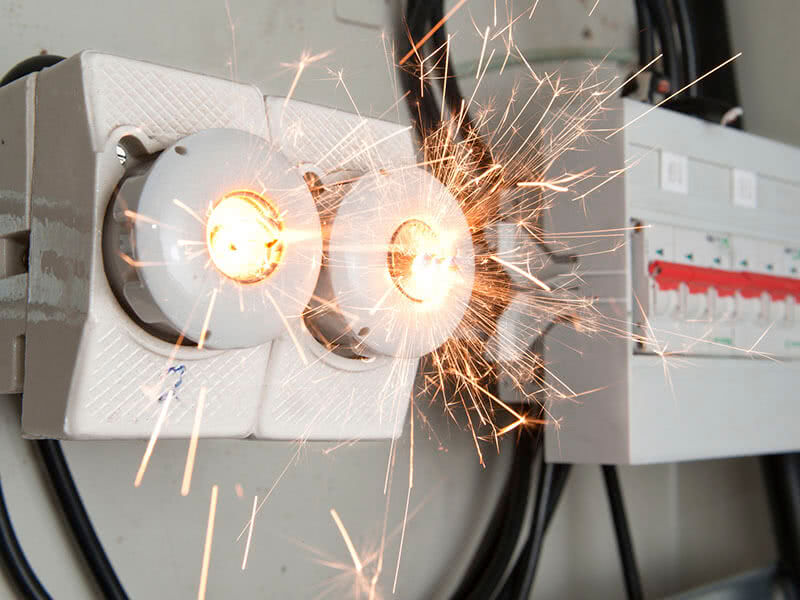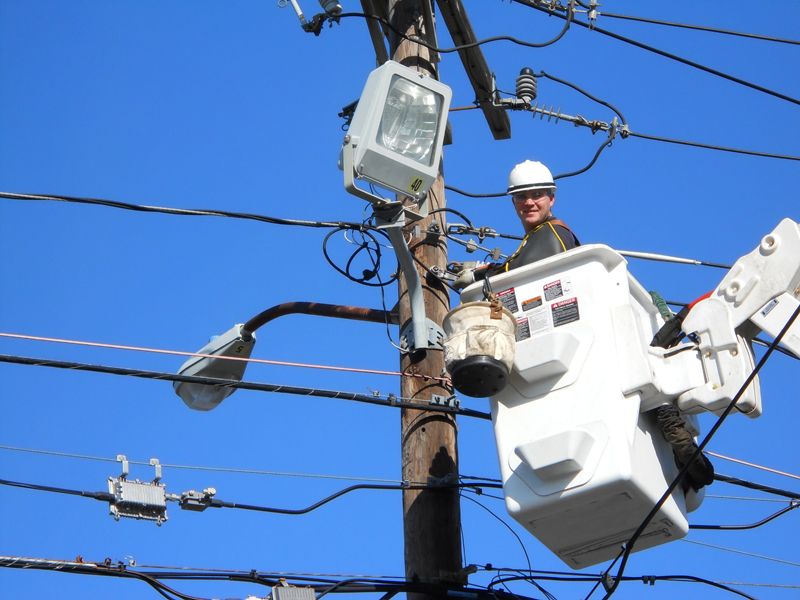When is an electric shock particularly dangerous? How should you behave after an electrocution accident with heavy electric shock and other important rules of conduct to avoid accidents with electricity we explain in this blog article.
An electrocution or an electrocution accident or electro-accident as it is called by experts is fortunately a relatively rare accident event, compared to other types of accidents, such as car accidents.
The good news is that the number of accidents involving electrocution has been falling steadily over time, as can be seen in the following diagram.
Especially accidents in the commercial sector have been decreasing the most. The close-meshed network of measures in the area of electrical operational safety has significantly improved the situation here over the last few years. From a statistical point of view, the risk of suffering an electric shock is generally five times higher for men than for women.
Electrocution: the human factor
Unfortunately, even perfectly tested and certified systems cannot prevent the consequences of ill-considered behaviour by human actors.
Avoid electric shock: The five safety rules of electrical engineering:
It is very dangerous to handle live components if maintenance work is carried out accidentally or even intentionally while they are live.
It is therefore essential to observe the following rules:
- Disconnect
- Secure against restarting
- Determine freedom from voltage at all poles
- Grounding and short circuiting
- Cover or fence off adjacent live parts
Electrocution accidents – The private sector
In the private sector, it is mainly sockets, cables and lamps, i.e. electric shocks in the 230V range, if an electrical accident occurs. Often one of the main problems here is that “maintenance” or tinkering work is carried out on appliances without interrupting the power supply.
Why is an electric shock so dangerous
The most dangerous effects of an electric shock, e.g. from a power outlet, are ventricular fibrillation and tetanic muscle contractions. Alternating current is considerably more dangerous here than direct current, four to five times more dangerous depending on the literature.
Electrocution Socket – The electrical resistance of the human body
Unfortunately, the frequency of the electrical current from the socket, 50 – 60 Hz, is ideal for triggering ventricular fibrillation and muscle contractions. The electrical resistance of the human body is with approximately 1 kΩ to 2.4 kΩ quite high, because the outer skin layer acts as an insulator. The currents flowing through the body under these conditions do not necessarily reach the threshold values just mentioned.
This is the reason why life-threatening currents do not always flow through the body when an electric shock occurs, so that not every electric shock from the socket is fatal. However, this resistance is dependent on many influencing factors and can be drastically lower, especially with wet, sweaty skin and especially with children, so that very quickly life-threatening currents can flow through the body of the person affected.

Electrical accident at high voltage
In contrast, an accident involving high voltage causes mainly thermal damage to the tissue and thus manifests itself mainly in burns. This is the case because the currents involved are many times higher than those in low-voltage accidents and at the same time very hot arcs occur which can, under certain circumstances, bridge the human body.
First aid in the event of a power failure
As with any accident, it is important to follow the so-called rescue chain in the event of an electric shock.
Rescue chain:
- protection, self-protection…
- Alerting
- Life-saving emergency measures
- Other necessary treatments
- Stabilization of the patient, transportability
- Transport to hospital
Even perfectly maintained and tested systems do not protect against imprudent and negligent action. The five rules of electrical engineering must always and everywhere be observed. In the event of damage, securing the accident site has top priority. The stabilization of the cardiovascular system is of great importance in electrical accidents, as the person affected has very little time in case of doubt due to the specific effects of electrical current on the human body.
If a defibrillator is available, it should be used without hesitation even if a person has suffered a dangerous electric shock. Companies where a lot of work is carried out on and near electrical equipment should make it available. Fully automatic defibrillators are also affordable for smaller companies and can easily save lives!


